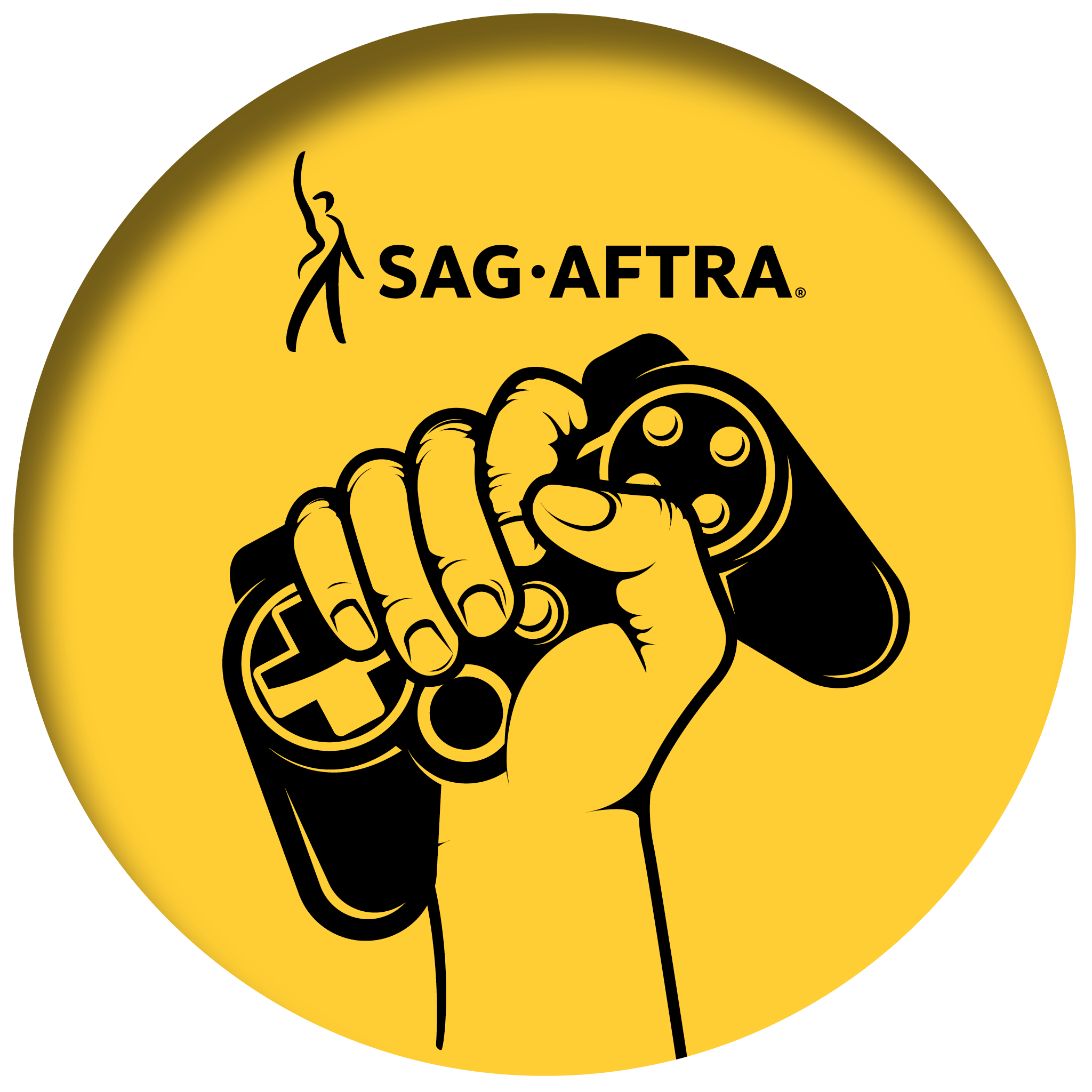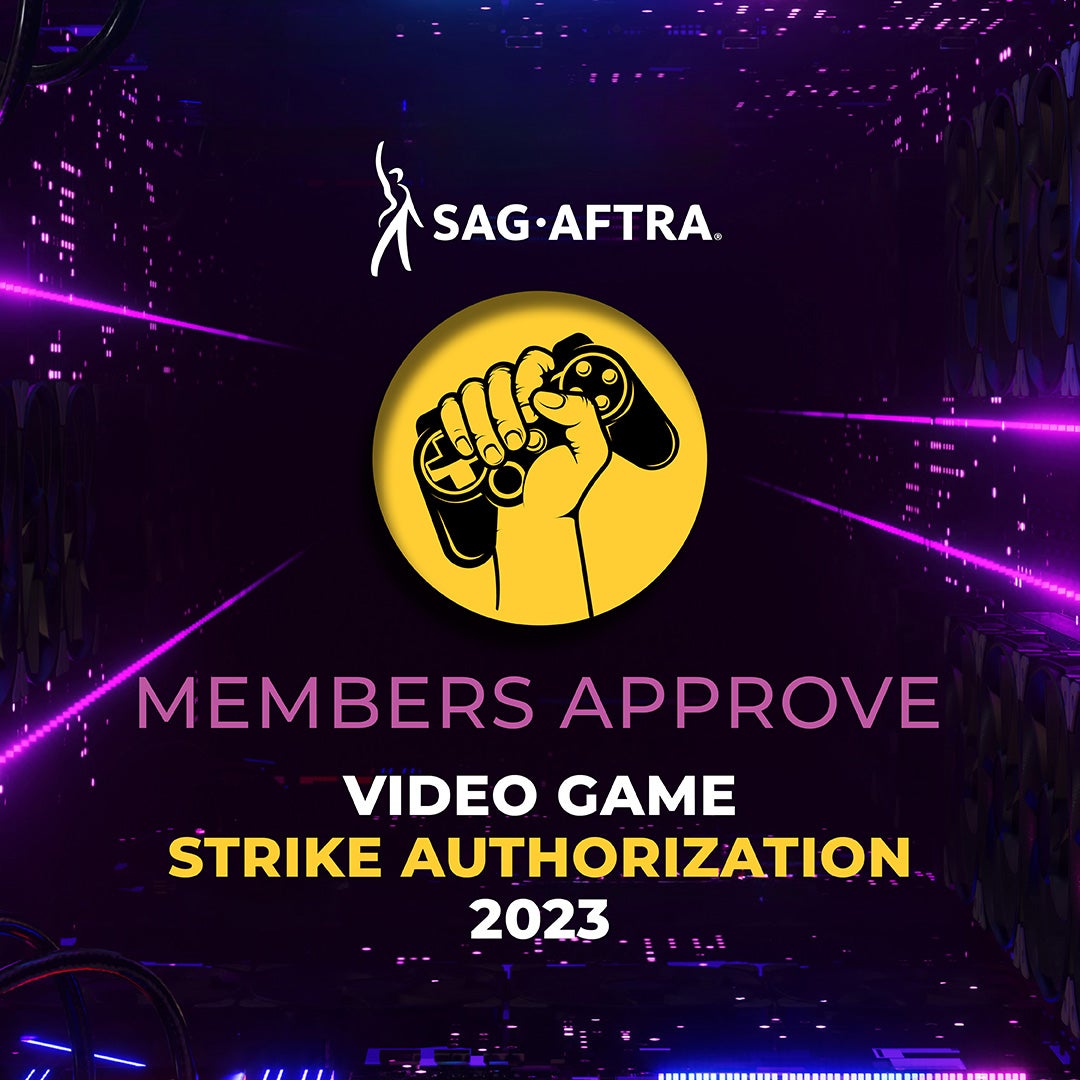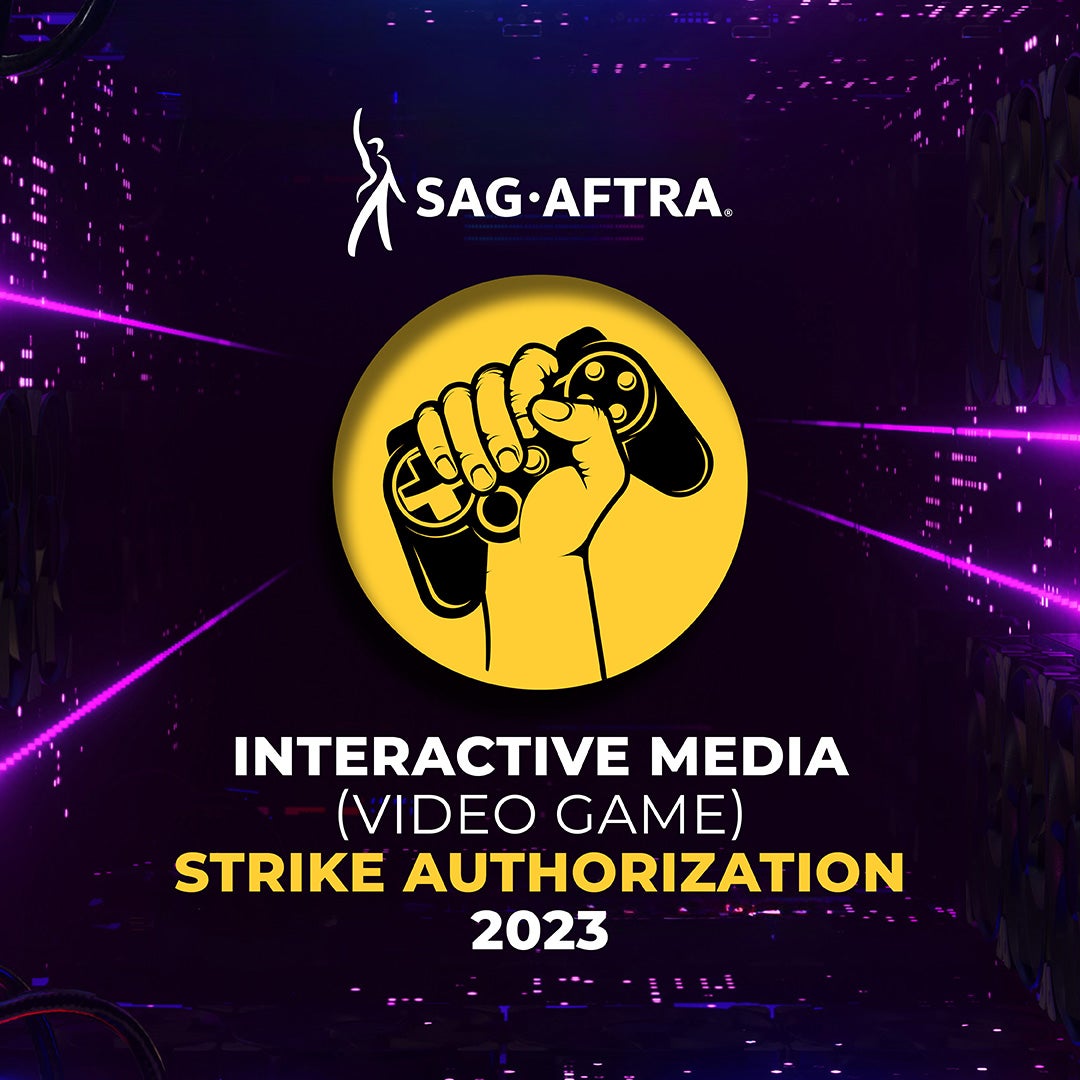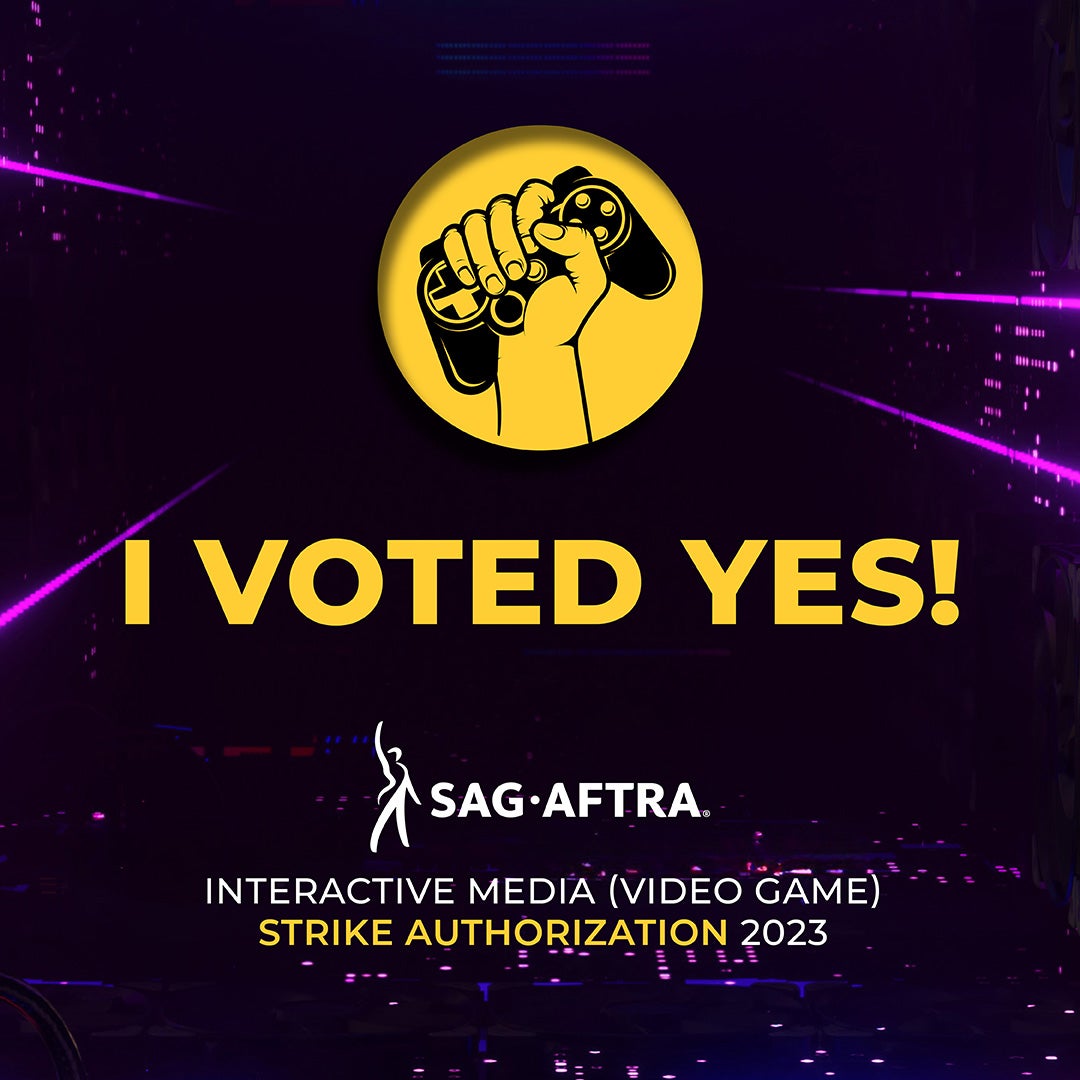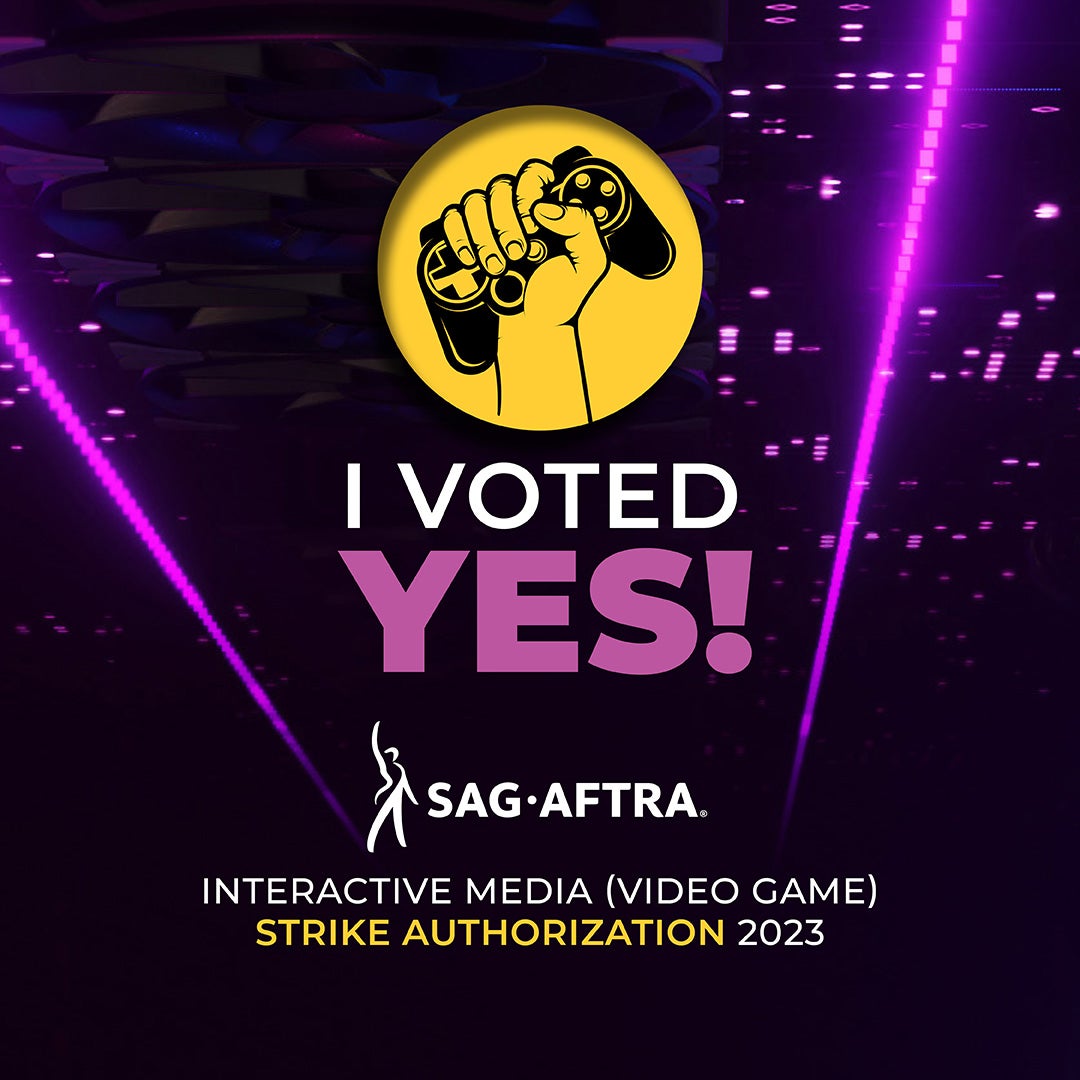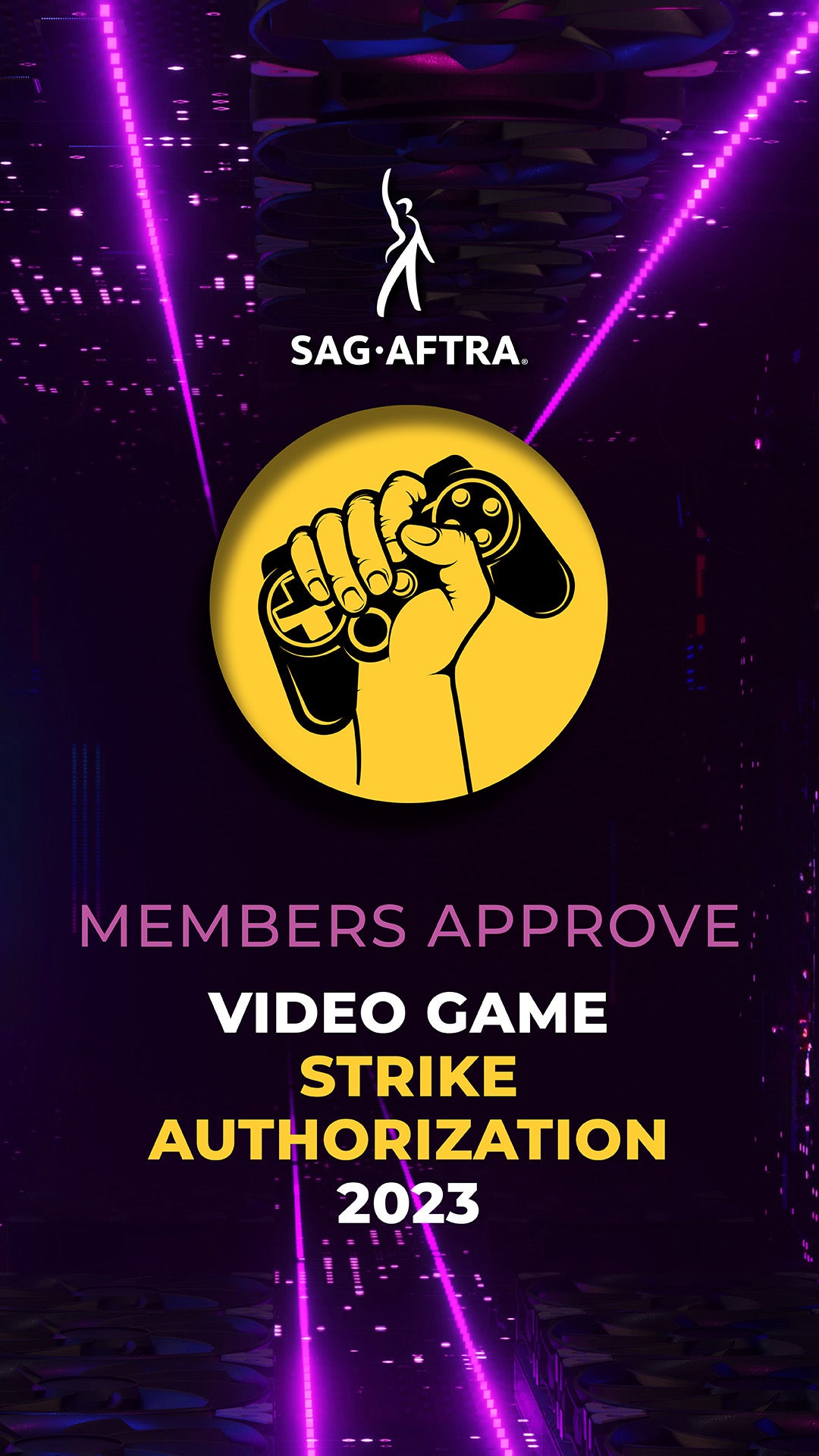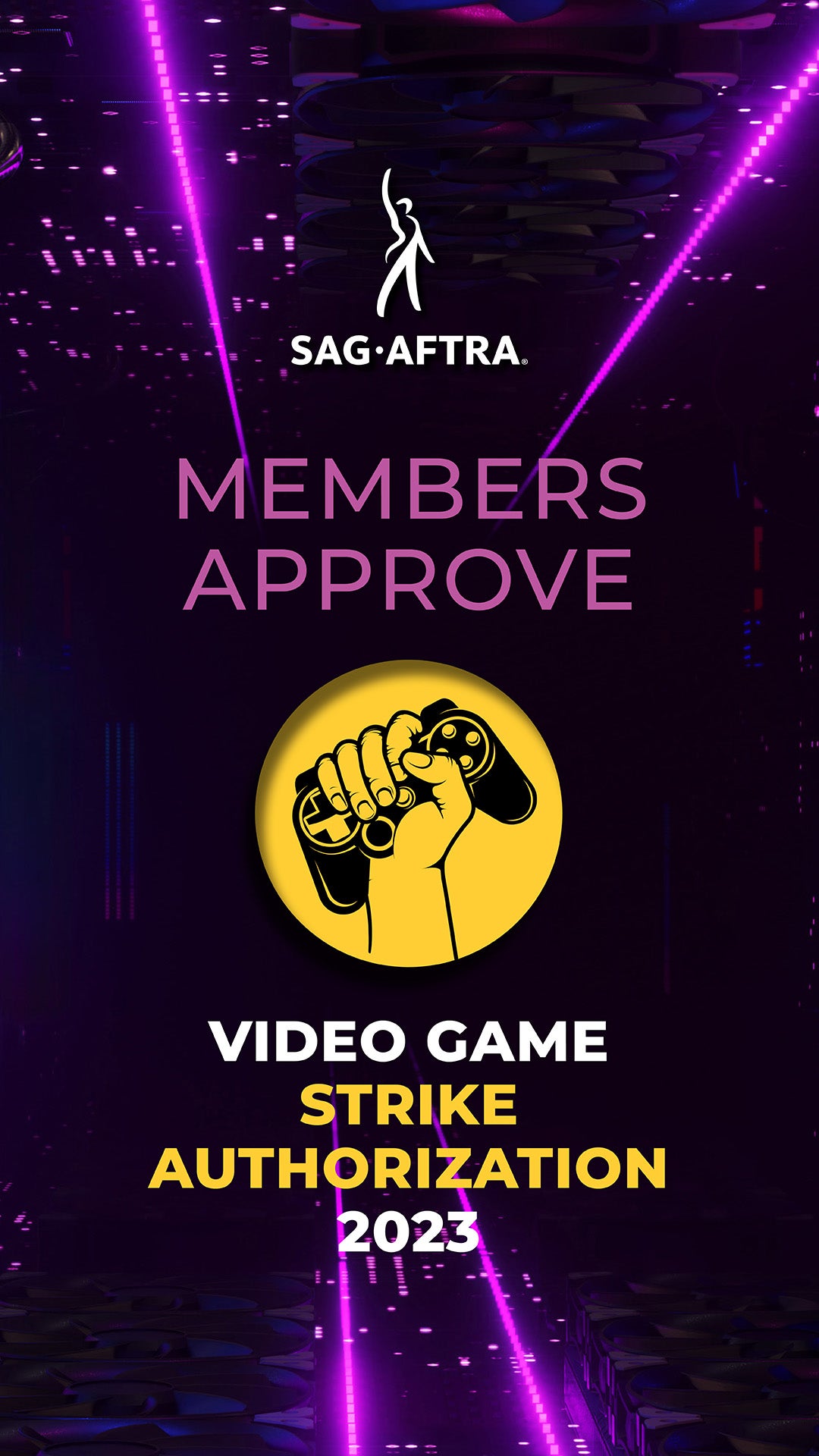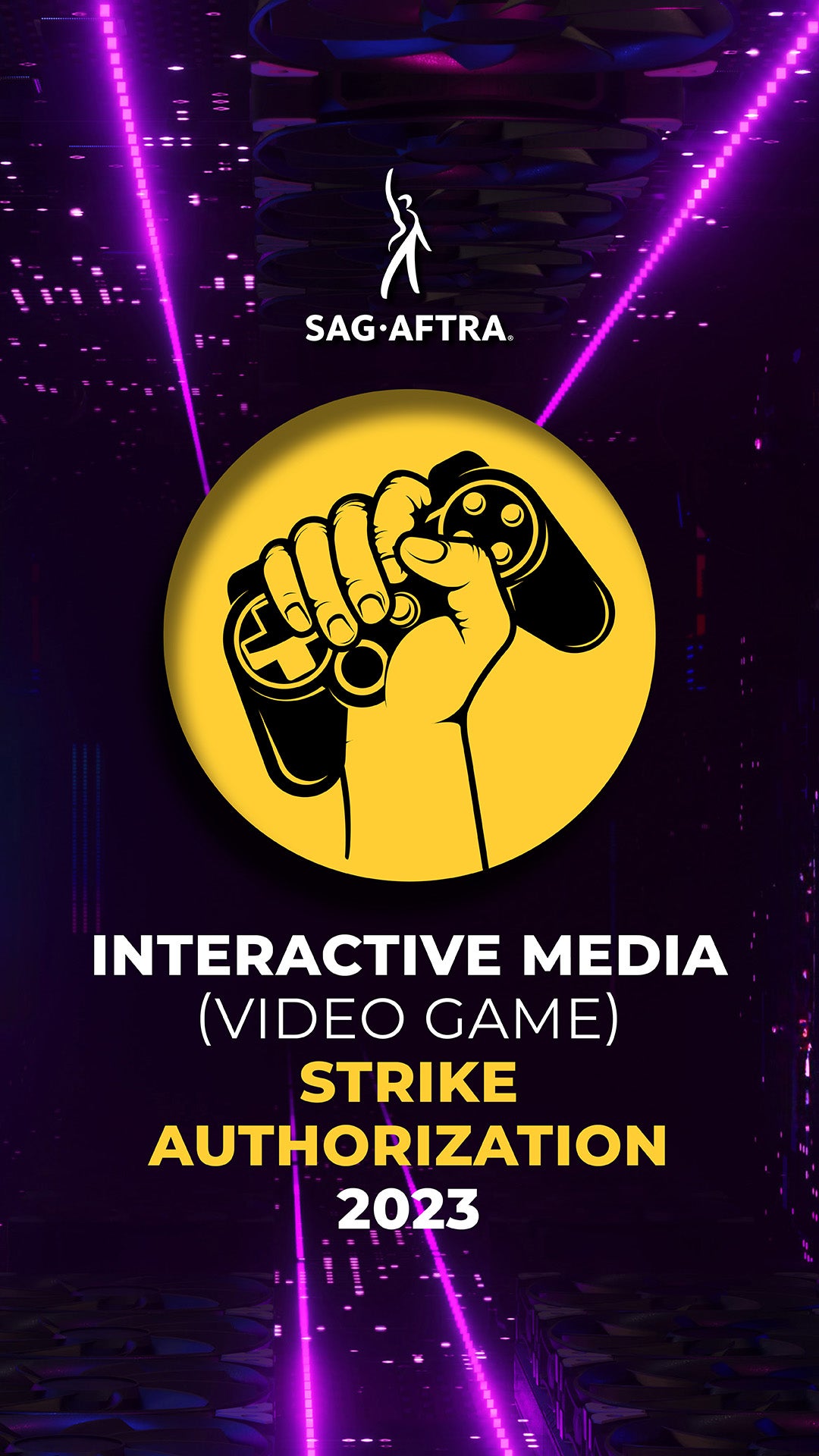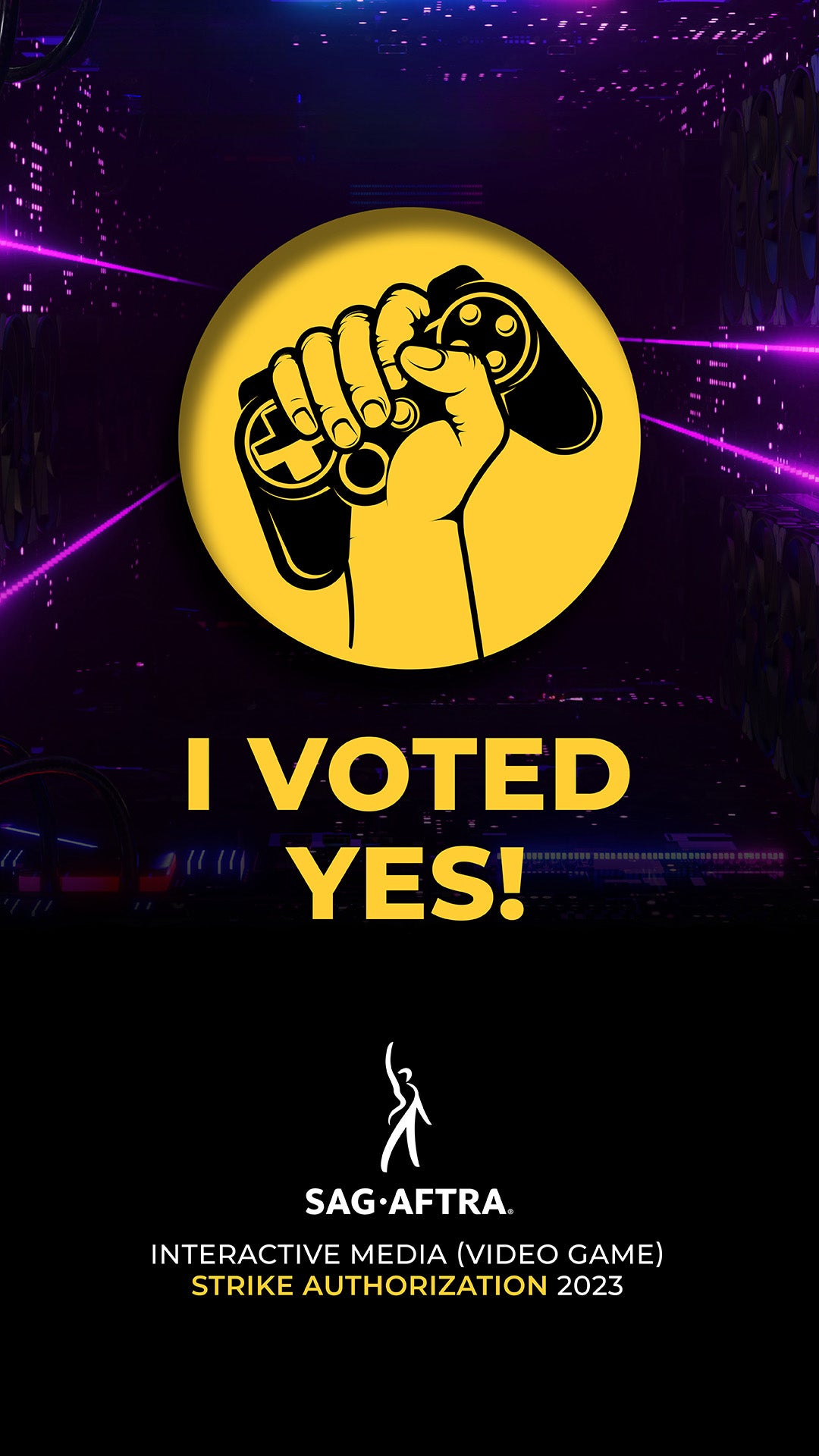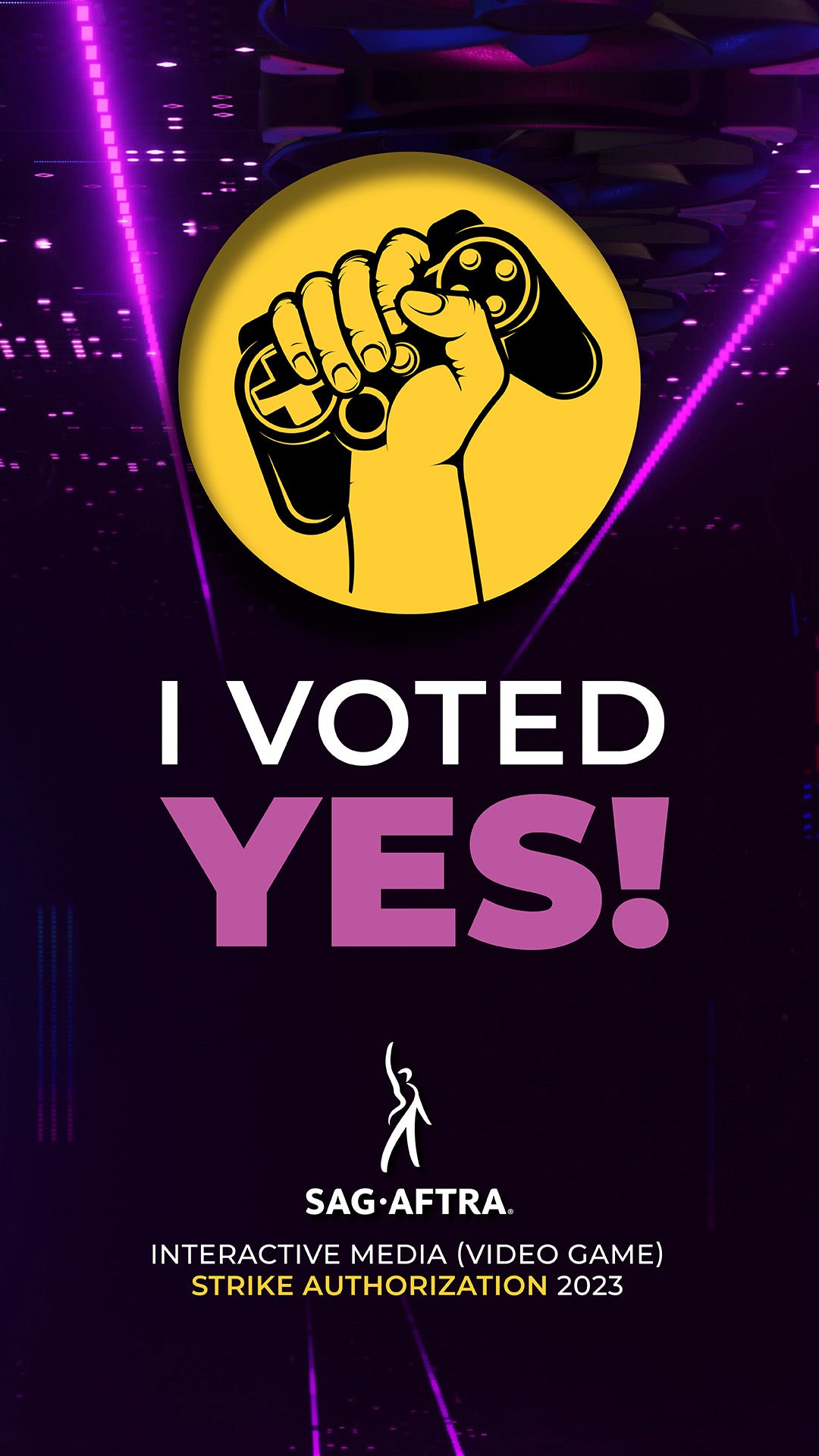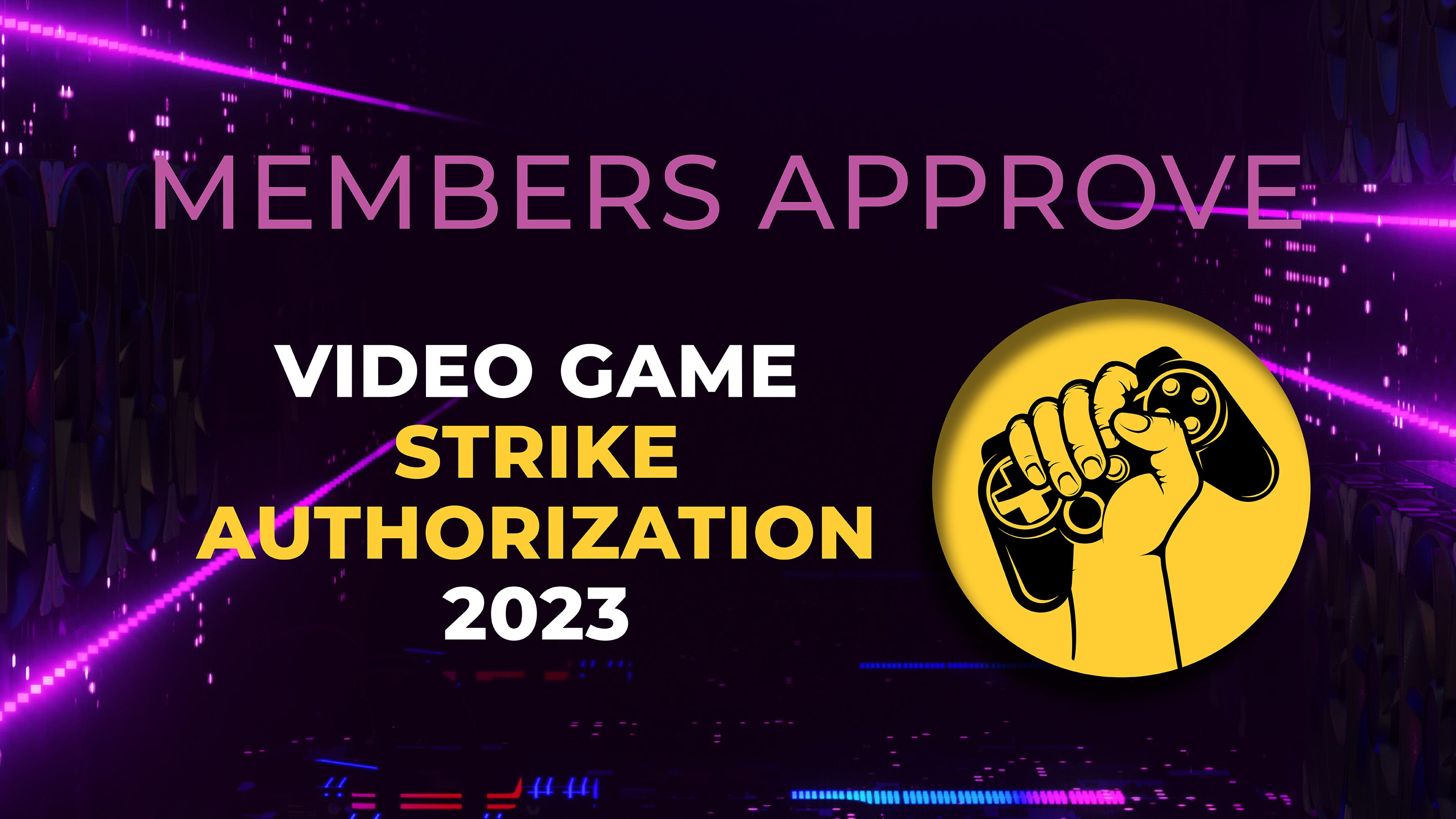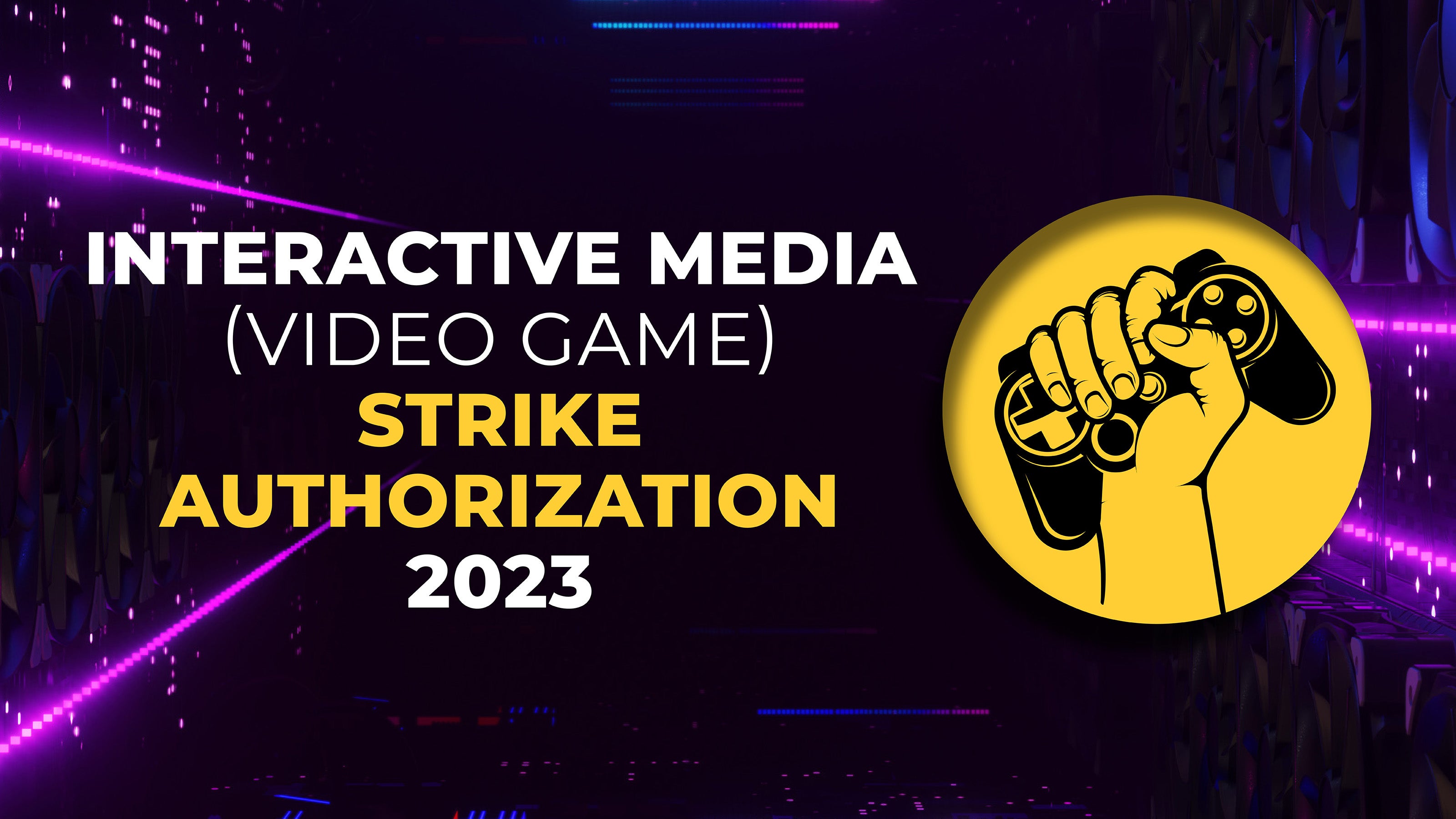SAG-AFTRA Members Approve Video Game Strike Authorization Vote with 98.32% Yes Vote
Members Signal Their Determination to Reach a Deal, as the Union Prepares to Resume Negotiations With Authorization in Hand
SAG-AFTRA members have voted 98.32% in favor of a strike authorization on the Interactive Media Agreement that covers members’ work on video games. 34,687 members cast ballots, representing a voting percentage of 27.47% of eligible voters. Read more.
Frequently Asked Questions
-
For nearly a year, the Interactive Media Agreement Negotiating Committee has been bargaining in good faith with signatory video game companies, but the employers have refused to agree to vital terms our members need.
-
- Though the issues affecting performers who work in video games mirror those issues affecting TV/Theatrical performers, the Interactive Media Agreement negotiations with the video game companies don’t affect the timing or expected progress of negotiations or our strike on the TV/Theatrical contract. A strike authorization vote on this Agreement will not impact the TV/Theatrical strike.
-
- A strike authorization is a powerful tool that gives your Interactive Media Agreement Negotiating Committee added leverage at the bargaining table by demonstrating to the video game companies that SAG-AFTRA members support their committee and are willing to fight for a fair deal. It does not automatically mean there will be a strike. If 75% or more of eligible members casting ballots vote YES, a strike authorization passes and gives your National Board the authority to call a strike after the contract expires. In the case of SAG-AFTRA’s Interactive Media Agreement, assuming a strike authorization is approved by members, that means the National Board can call a strike anytime after September 26, 2023.
-
- SAG-AFTRA has been in Interactive Media Agreement negotiations with the video game companies (Activision Productions Inc, Blindlight LLC, Disney Character Voices Inc., Electronic Arts Productions Inc., Formosa Interactive LLC, Insomniac Games Inc., Take 2 Productions Inc., VoiceWorks Productions Inc., and WB Games Inc.) since October 2022. Throughout the negotiations, the companies have refused to agree to critical terms our members need. Though we’ve made gains in some areas, the contract expired on Nov. 7 of last year, and since then, we’ve been operating month to month. Our next bargaining session is scheduled for September 26, 27 and 28, but we fear without having substantial leverage in place, the companies will continue to drag their feet on making an acceptable deal.
- The outcome of the IMA negotiations will determine whether our members working in interactive media can continue earning a professional living doing the job they love. Compensation has been undercut by inflation, unregulated use of artificial intelligence threatens the very voices and likenesses that form the basis of professional acting careers and members’ safety is not being taken seriously. To maximize our leverage, we are asking members to vote to authorize an Interactive Media Agreement strike should discussions at the bargaining table prove unproductive. A strike authorization vote doesn’t guarantee a strike will occur; rather, it’s a tool we can use to help our negotiating team secure the best deal possible.
-
- With a YES vote in hand, the National Board will have the ability to declare a strike if bargaining fails to produce a deal our members will accept. A YES vote is a strong show of solidarity with your fellow working actors on the Interactive Media Agreements and the Negotiating Committee, giving them the backing they can leverage to reach a deal and fight for the contract we deserve.
-
- A no vote tells employers that they do not have to make a fair deal in order to keep our members working. Without the threat of a work stoppage, management has no incentive to offer the wage increases, AI protections and other terms that our members need.
-
- The vote requires at least 75% of eligible members casting ballots to vote YES to authorize the National Board to declare a strike once SAG-AFTRA’s contract expires. While 75% is the required threshold, we want as close to a 100% YES vote as possible. This shows employers we are united in our resolve for a fair contract.
-
- No. Instead, the strike authorization vote permits the National Board to declare a strike if employers fail to protect and uphold the basic working conditions of our members — the professional performers who make this one of the most successful industries in the world. Your negotiating committee and National Board will do everything they can to reach an agreement without a strike, and the leverage of a successful strike authorization vote will strengthen us to push for the best deal possible.
-
- SAG-AFTRA is negotiating with the following video game companies: Activision Productions Inc, Blindlight LLC, Disney Character Voices Inc., Electronic Arts Productions Inc., Formosa Interactive LLC, Insomniac Games Inc., Take 2 Productions Inc., VoiceWorks Productions Inc., and WB Games Inc.
-
- Members who work in voiceover and performance capture for video games are the driving force during negotiations. The committee advises and works in partnership with National Executive Director and Chief Negotiator Duncan Crabtree-Ireland, Chief Contracts Officer Ray Rodriguez and a staff team of contract experts and seasoned negotiators.
-
- The voice and performance capture artists who bring video game characters to life deserve a contract that protects their voices, likenesses and careers and reflects the value they bring to the multibillion dollar gaming industry. The critical issues at play are similar to those at stake in SAG-AFTRA’s TV/Theatrical/Streaming negotiations.
- These issues include:
- - Artificial intelligence protections around consent, control, transparency and compensation.
- - Wage increases that reflect compensation erosion due to inflation.
- - Safety for on-camera performers and vocal stress protections for voice artists.
- SAG-AFTRA has continued to negotiate in good faith with the interactive media companies, but those companies remain determined to underpay performers while turning a blind eye to key tenets of performer safety and exploiting actors’ performances and likenesses without proper informed consent. For many performers, their first job may be their last, as companies become increasingly eager to scan our members or train AI with their voices as soon as they show up for work.
-
- Postcards will be sent to eligible members on Tuesday, September 5, with instructions on how to vote, and voting will close at 5 p.m. PT on Monday, September 25.
Shareable Graphics
Profile Photos
Social Graphic
Stories
X Graphic



